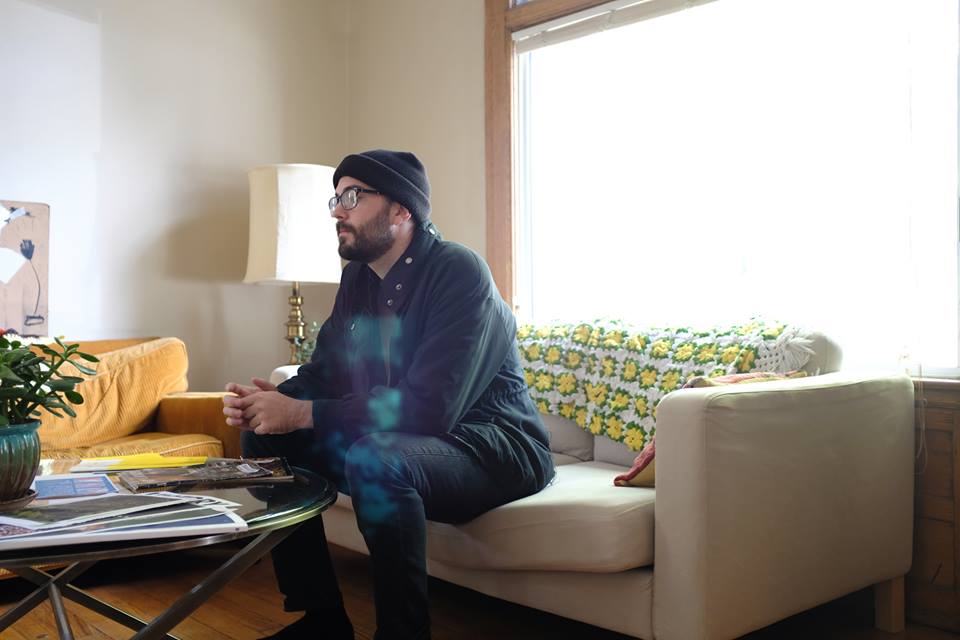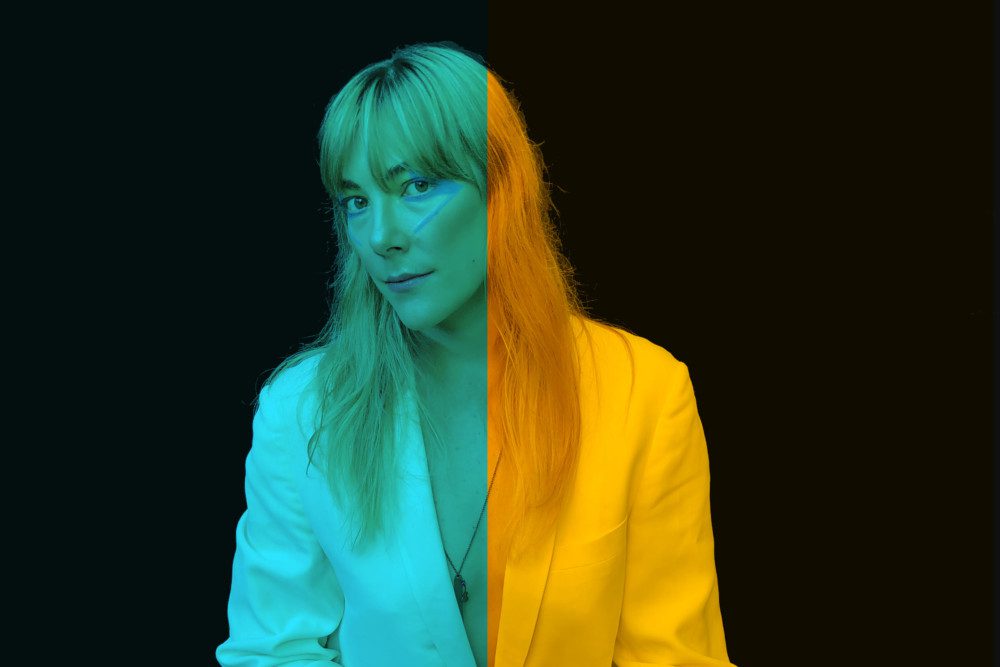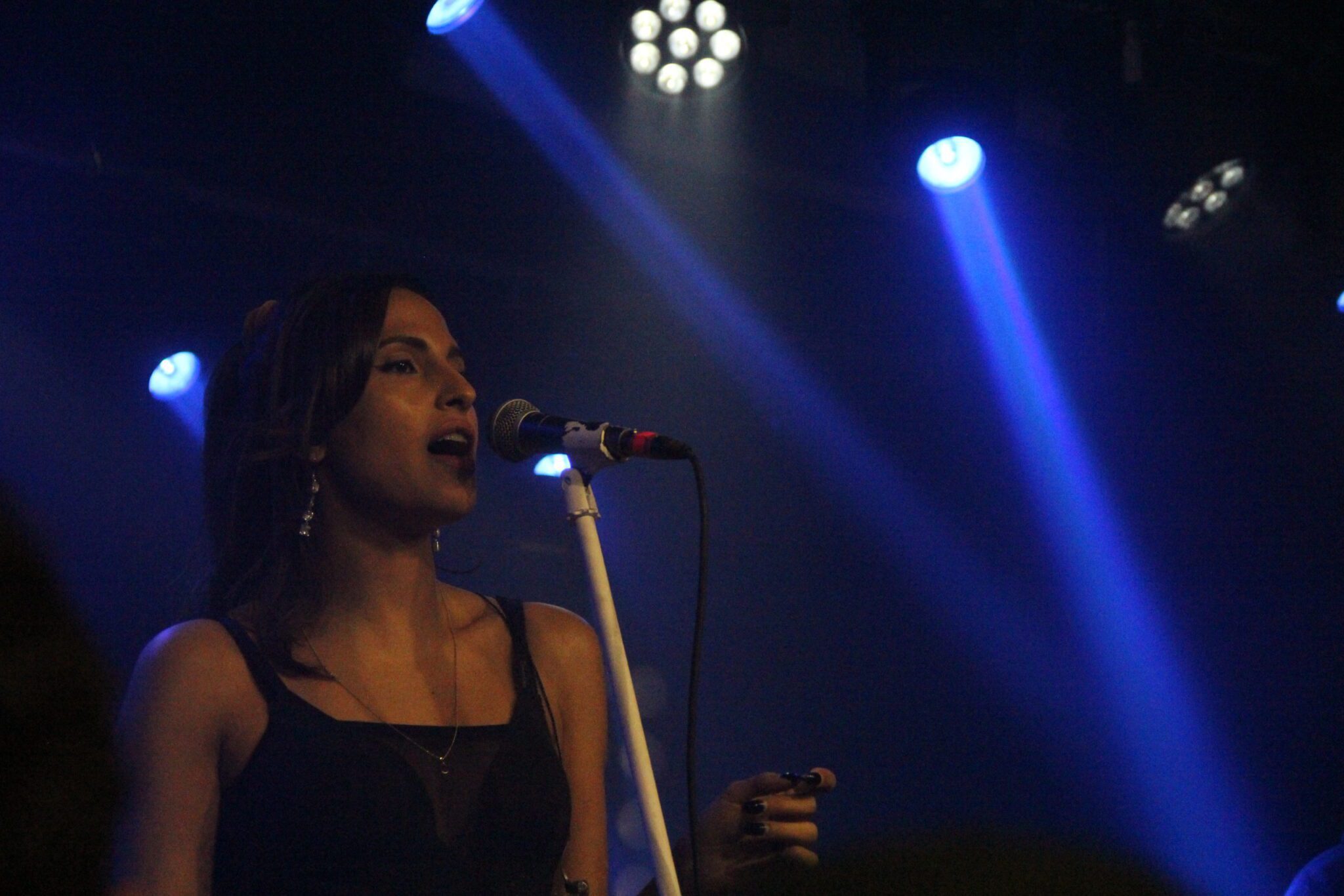PLAYING ATLANTA: Pip the Pansy and the Art of Reinvention
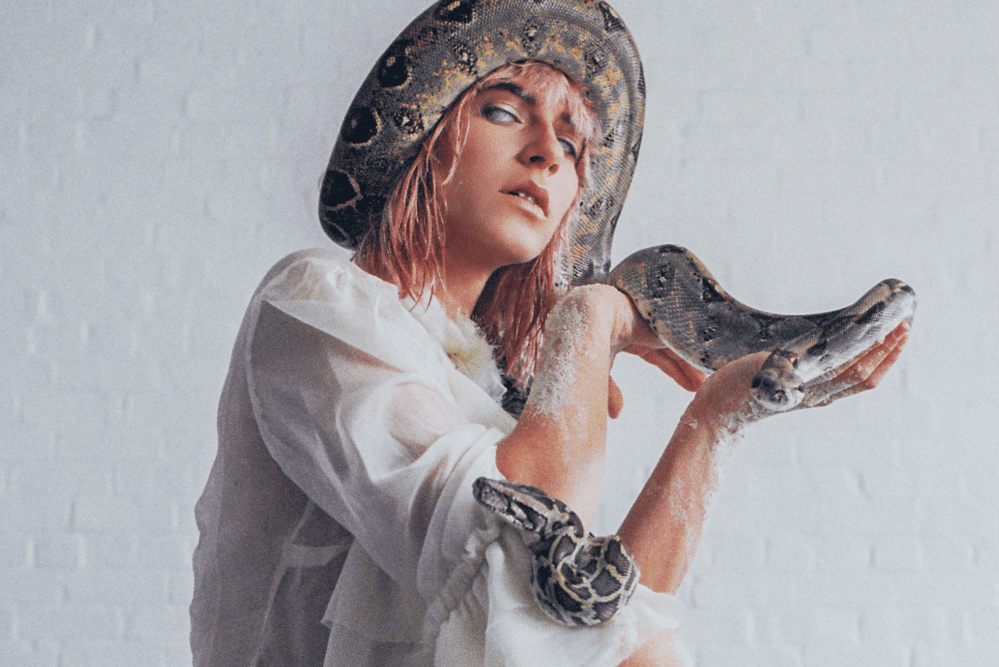
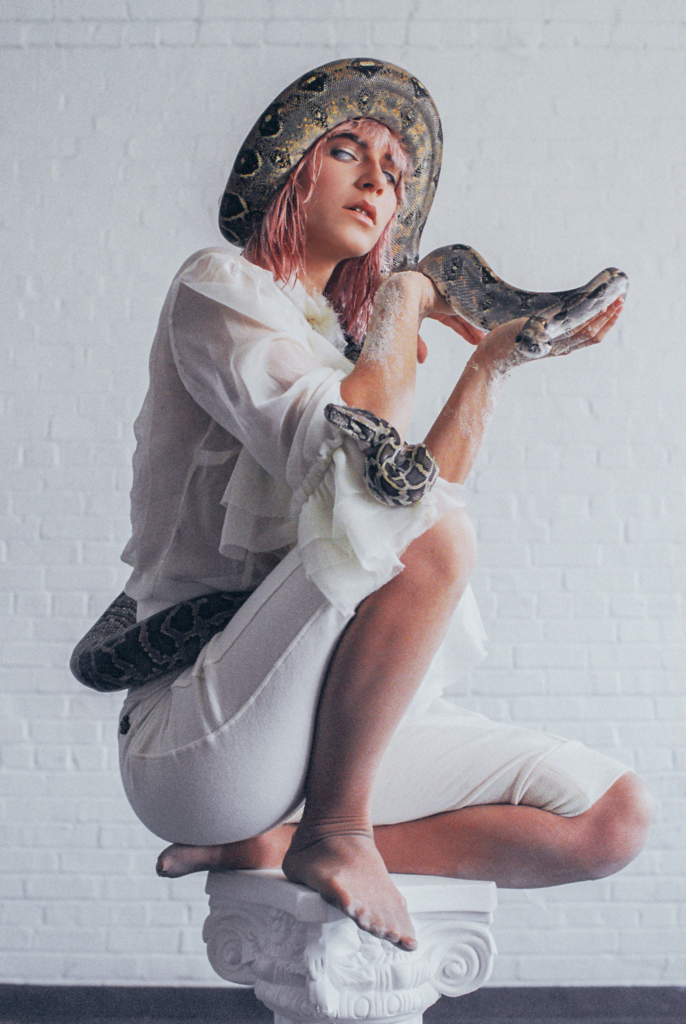
The first time I ever had the chance to see Pip the Pansy perform, she was known by another name and draped in flowers: her body, her microphone stand, her keyboard. She was a character from a Greek myth that had traveled through the ages to grace us with her song, and she captivated the audience with an imperceptible magic.
Combining haunting piano melodies with fuzzy synth and driving rhythms – and the occasional flute solo – Pip the Pansy dispels every notion I ever had about pop music and replaces it with a lilting, quirky melodicism. With the release of her latest single, “Siren Song,” I can’t help but find myself even more completely under her spell. Read on as we deep-dive into her creative process, her collaboration with her husband (Atlanta singer-songwriter Sam Burchfield), and her take on timeless lessons found in ancient literature.
AF: Thanks so much for sitting down with me! You are one of the most uniquely creative artists I’ve ever encountered; how did you find your way to music?
Pip: Gah, thank you! Ya know, it never really crossed my mind growing up that I would pursue a career in music. I had taken some piano lessons as a kid, started playing flute in the 4th grade, took some chorus classes in grade school, and dabbled in musical theatre, but it was never really my main focus; it was a hobby. I put a lot more energy into the visual arts, I would say.
I got my degree in photography and figured I would end up doing something in that field but everything shifted pretty quickly after I graduated college. I remember applying for photography jobs right after college and feeling sort of blue about it. I love photography so much — it is one of my passions — but I had a gnawing feeling that if I pursued only photography, I would be neglecting a lot of my other interests and strengths.
I had sort of toyed with the idea of writing songs, but nothing serious. My good friend Gemille encouraged me to give it a real effort, so I figured why not? Having a musical persona seemed like a good way to combine all my passions into one little package. There’s a visual aspect to it, an opportunity to connect with people, a little bit of theatre in a way, lots of traveling… I liked the job description and decided to give it a shot. It helped that I had always kept some musical hobby in my back pocket and I grew up with a fairly musical family; everyone sings or plays an instrument — not professionally — but still, it was always around me. Looking back, I should have known I would end up doing something like this.
AF: You combine such stunning visuals with music that really draws listeners into another world, and it verges on performance art, in my opinion. Can you talk some about your evolution as an artist, both as a singer-songwriter and a visual artist? How do you create such powerful choreography in your music videos?
Pip: I think the visual arts portion of me and the songwriter portion of me are constantly informing each other and shaping each other. I wouldn’t write the songs I write if I didn’t have a background in the arts, and my art wouldn’t look the way it does without the music. When I first started this whole thing my goal was just to get it out there, a “fake it ’til you make it” sort of deal. My material was more vapid, but still eye-catching, simply trying to attract some attention. I figured people were probably going to remember what they saw more than what they heard, and nowadays people may not even stop to listen unless it looks interesting. All the flowers were just a way to get people to stop and listen and hopefully leave something in their brains to remember.
Of course, you can’t fake it the whole time; the art has to mature if you want it to last at all. I know now that I have a responsibility to create things that are meaningful or that at least say something. As my career and life move forward, I am finding it more and more enjoyable to take my time with things, to learn and soak up experiences, so that when I do create art, it is coming from a place of depth and not just shallow content, although “shallow” content can have its positive place in art sometimes. But yeah, I used to not care if things didn’t make sense; as long as the melody was beautiful, I felt satisfied. Things stylistically and technically have improved over time for me as well, but the biggest evolution is probably that I care more about the meaning behind my art now more than ever.
As far as choreography goes, I am not really a dancer, but I do love the idea of the human body being another expression of creativity. I can’t help but move when I hear music playing. It just seems natural to dance in some of my videos. For my most recent music video, I had some help from my friend Jordana Dale. She came over one day and we worked through some choreo together for “Siren Song.” It was one of the most fun things I have ever done with a friend. I highly recommend it.
AF: What is your creative process like? How do you take a song from the idea to the studio to the stage?
Pip: The creative process can be so hard to explain, and it differs from project to project. The best I can say is that I absolutely have to be alone at first. I feel too shy and vulnerable to create while people are around, especially during the initial conception of an idea. Even my husband being home can give me a lot of anxiety while trying to create. I like to start at the piano and eventually I move to the computer to add the proper atmosphere around whatever melody I came up with. I don’t even know where lyrics come from. Most of my songs start with some placeholder lyrics that make no sense at all, but it’s the right number of syllables for the melody, and then I try to plug in the right words from there. Sometimes it feels like it’s all happening simultaneously.
My most productive, creative moments are a whole day ordeal. I get the best stuff done when Sam is gone on tour and I wake up and spend an entire day alone. I don’t talk to any other humans and I hole up in the house and drink a ton of coffee and tea. I pace a lot on those days or just lay in the middle of the floor looking at the ceiling. Sometimes I will have three of those days in a row. I like to get to the point where I feel really lonely and a little crazy; that’s when stuff starts to flow better.
I tend to prioritize how the song is going to sound in the studio. I want it to exist as its own little piece of art. I don’t ever really consider how it is going to feel on stage until it’s completely done. Even now, I have a new EP that is about to come out and I still haven’t thought about the show. Maybe a proper comparison would be a painter wanting their painting to look really good and they don’t even think about how it’s going to look hanging in a museum or printed on a postcard. They just care that their creation now exists in its proper form, but eventually, they’re like, “Oh yeah, I probably should put it in a good frame and have good lighting on it I guess.” Maybe that’s a dumb analogy. I definitely care that my shows are a good experience, but my songs on the stage feel like a completely different thing than the song itself.
AF: Which bands or artists do you consider your greatest inspirations?
Pip: Grimes and The Beatles.
AF: Your husband, Sam Burchfield, is a musician as well. Do you collaborate creatively with each other, or do you keep your projects separate? Does your creative process differ when you’re working together versus when you’re working alone?
Pip: I love an opportunity to work with Sam but it’s rare. My anxiety ramps up the most when we are trying to collaborate and that usually causes us to stop. But there have been a few times where we’ve kept that under control and have been able to work together and it’s always really gratifying when it does work out. He recently released a song titled “Blue Ridge June” that was our first true co-write. We were both working on our computers one day and I heard him sort of humming this melody — I don’t think he even realized he was humming — and I quickly got out my phone recorder and was trying to steal the idea without him noticing. I was caught red-handed and we decided to stop sending emails and go write the song together. I’m still pretty private with the start of an idea but once I get something going I do like to sort of bounce some ideas off of Sam and get his input. He was definitely a bigger part of this upcoming release. The melody for “Land of Love” came from him just messing around on the piano one night and a lot of the lyrics in “Medusa” were co-written.
The nice thing about working with Sam is that we play completely different genres so there is never any feeling of jealousy or competition or fighting over which artist the song will belong to. We genuinely want to serve the song and come up with something that is true and genuine for whichever one of our projects we are working on. Sam is so patient and graceful; I am really lucky to be married to him. It’s a vulnerable process but it’s really beautiful to be able to create music together.
AF: You’ve gone through quite a few changes over the last few years, most notably a name change. What has been your biggest takeaway through the changes, and what advice would you give to your younger self, knowing what you’ll face in the future?
Pip: Don’t be too prideful and stay focused on your aim.
AF: You’ve got a brand new album, Love Legends; Part 1, coming out soon. What was the inspiration behind the record? Did it differ from previous projects?
Pip: Love Legends; Part I is inspired by Greek Mythology and the Italian Renaissance. I wanted to revisit the Greek classics and bring them into an indie-pop realm. I am fascinated by the lessons that can be learned in ancient stories and it’s interesting to see the same truths reflected across many cultures. At the moment, I don’t feel like writing about parties, or ‘being yourself,’ or the political climate, or even love songs for that matter; that’s all already out there. If I am going to add to the noise I want it to be about our mortality. All the things happening around us are important but above all, we are going to die, and I want to nourish my soul with truth. At least that’s my aim for this current project. I feel like I am only on the tip of the iceberg with Part I so I am excited to further the concept with future projects.
This EP differs from other projects in that it is my most DIY. I did a lot of pre-production at home and then recorded the EP with Sam and our good friend Caleb Hawley in an empty apartment in Spanish Harlem and had our friend Owen Lewis mix everything. It’s also the first time that all the songs revolve around one theme.
AF: You’ve just released an incredible music video for “Siren Song,” and it’s absolutely stunning! What’s the story behind the song?
Pip: “Siren Song” is my version of the sirens in Homer’s Odyssey. The sirens are winged creatures that lure sailors to their destruction with their beautiful song. They are symbolic of something that is essentially too good to be true, like fame or fortune. We are tempted by the allure of fame, money, beauty, more social media numbers or lust, et cetera, but these things lead to an empty life, to the death of our souls if we aren’t careful.
In my version of their song, the sirens sing, “Call out my name.” I believe when we say something out loud, we speak it into existence. Acknowledging a desire enough to say it out loud allows it to gnaw at you and taunt you. You will start to chase it but you will never be happy.
AF: We’re living in a time where women in music and art are given more of the respect they so deserve, but, at the same time, more and more injustice is coming to light, as shown by the #MeToo movement, not to mention several groups petitioning for more visibility for women on the radio or festival lineups. What has been your personal experience as a woman in the music industry? Do you feel that the industry is changing, and, if so, for the better?
Pip: I cannot speak for others, but my personal experience as a woman in the industry has not been bad. In fact, I am very happy with how things have gone. With the exception of a few drunkards, I generally feel like my fans and peers are extremely respectful. While true injustice needs to be addressed, I am personally very hesitant to add to the subject as a “victim” of some patriarchal system because I believe all these issues are far more complicated than that. There are more factors than just gender bias that play into the visibility of women vs. men on the radio/festivals. If someone is treating me unfairly I would rather have the mentality that they are treating me that way because they’re an asshole instead of because I am a woman. I don’t want to further a culture that starts to demonize the “white man” or masculinity; I think that is a dangerous approach to the problem. I am still trying my best to understand it all and I want to be careful with my words, so for now I will continue to observe and research while grinding away at my art, finding my voice and hustling as hard as I can. I do think positive changes are happening and women have more freedom than ever to pursue something like this.
AF: You’re a fixture in the Atlanta-Athens music scene. What’s it been like to see the music and art scenes grow over the last few years, and why did you decide to make it your home base?
Pip: Athens was the perfect city to start doing music… everyone there is so receptive of art no matter what form it comes in, plus the motivation you get from being surrounded by an artistic community is priceless. I love Athens for that and owe a lot of my career to that community. I moved to Atlanta to challenge myself and to be closer to Sam. For now it is a great home base; we love our friends and we are able to travel easily out of Atlanta.
AF: Last one! What’s next for Pip the Pansy?
Pip: Part II, I suppose!
Stream “Siren Song” on Spotify now, and keep up with Pip as she prepares for the release of Love Legends; Part I, direct from the Land of Love.

